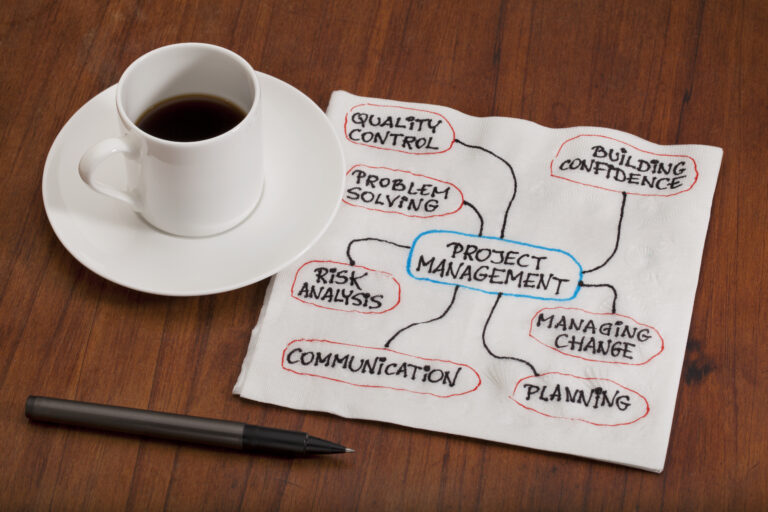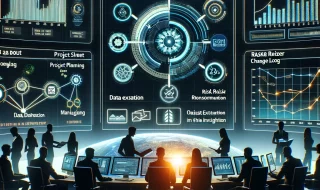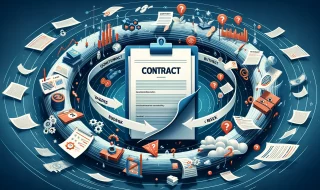What is the difference between project control and project management?
Project control is often incorrectly thought of as being the same as project management. And yet, while both activities are essential to the smooth running of a project, there are very distinct differences in the responsibilities and tasks of each.
The role of project control
Project control is a process of activities designed to collect, analyse and monitor the various sets of data related to a project in order to ensure compliance with the project’s costs, deadlines and scope, from project launch to project closure. It is itself divided into different processes: project planning, budget monitoring, risk management, change management, forecasting, performance management and project administration. Project control encompasses a multitude of tasks that enable a single project or a portfolio of projects to be brought to a successful conclusion. These include two key activities:
Identifying and managing risks
This is one of the main tasks of project control. It allows corrective measures to be put in place so that the project can be fine-tuned to meet all expectations. Risk management starts with setting up a register of risks and mitigation actions. Monitoring actions, as well as identifying and analysing risks, all come under the umbrella of project control.
The project controller will carry out schedule and cost risk analyses by simulating the impact of risks on the schedule and budget, this in order to forecast the possible impact, and to prioritise the implementation of mitigation plans.
Identifying performance deviations
Another important function of project control is to identify deviations in performance from the project plan, in order to ensure that actual results match expected results. Identification of deviations takes into account all aspects of the project, including costs, timescales, scope, quality, risks and deliverables.
Project control ensures that the project is advancing in accordance with the specifications and requirements defined in the specs. Generally speaking, project control therefore plays a part in project monitoring and acts as a performance indicator throughout the project, monitoring project risks and expectations. Project control doesn’t just scratch the surface, it gets to the nitty-gritty. It doesn’t just reveal risks and deviations, project control looks for the cause, or causes, and proposes solutions and strategies to remedy them. Project control carries out real reporting work and enables all aspects of the project to be optimised. It therefore has a number of advantages:
- Cost reduction
- Better project predictability
- Better visibility on the health of the project
- Mitigation of deviations
- Increased margins
- Competitive advantage
- Greater customer and employee satisfaction
- A better working environment
The role of the project manager
The term “project manager” is a very broad one, encompassing many project management functions. The project manager’s role is to steer the project from start to finish. They have a wide range of responsibilities:
- Project phasing: definition of phasing, project objectives, resources required, tasks, identification of dependencies, allocation of responsibilities and risk management.
- Project planning: creating an overall schedule with activities, deliverables and milestones, and managing deadlines. They are supported by the project planner.
- Budget management: allocating a budget for each phase and task, ensuring that funds are available. They are supported by project control and the cost controller.
- Communication: between all stakeholders and employees. They must report on the progress of the project and arrange meetings.
- Management: leading the project team by allocating tasks and resources to each member.
- Documentation: data collection and reporting to measure the progress of the project.
- Supervision: the project manager must supervise each task on the project and ensure that it runs smoothly.
The involvement of the project manager is crucial. They must not only manage and coordinate the project, they must also become truly immersed in the project’s objectives, and apply their skills and expertise to the constant motivation of all the team members in order to successfully complete the project. They play a major role in the success of a project, as they are responsible for making strategic decisions throughout the project.
The role of project control with respect to the project manager
Project control provides all this essential data to the project manager, who can then use it wisely to communicate with the stakeholders and ensure that the project remains on schedule. Project control “facilitates” the work of the project manager, enabling them to make informed decisions at the right time. Cohesion and synergy between the two are therefore essential if a project is to succeed.
Choosing PROPRISM for project control
Today, project control is essential to the success of complex projects. It ensures that the project is managed efficiently, in line with the specifications defined at the planning stage and the objectives set.
PROPRISM offers its expertise in project control as a complementary role to that of the project manager. Our teams can support each of your project managers to provide a proactive view of the project’s progress, enabling effective management of resources, early identification of problems, adaptation to changes and continuous improvement. All of these elements combine to ensure the overall success of your project, enabling you to achieve your objectives on time and within budget.




